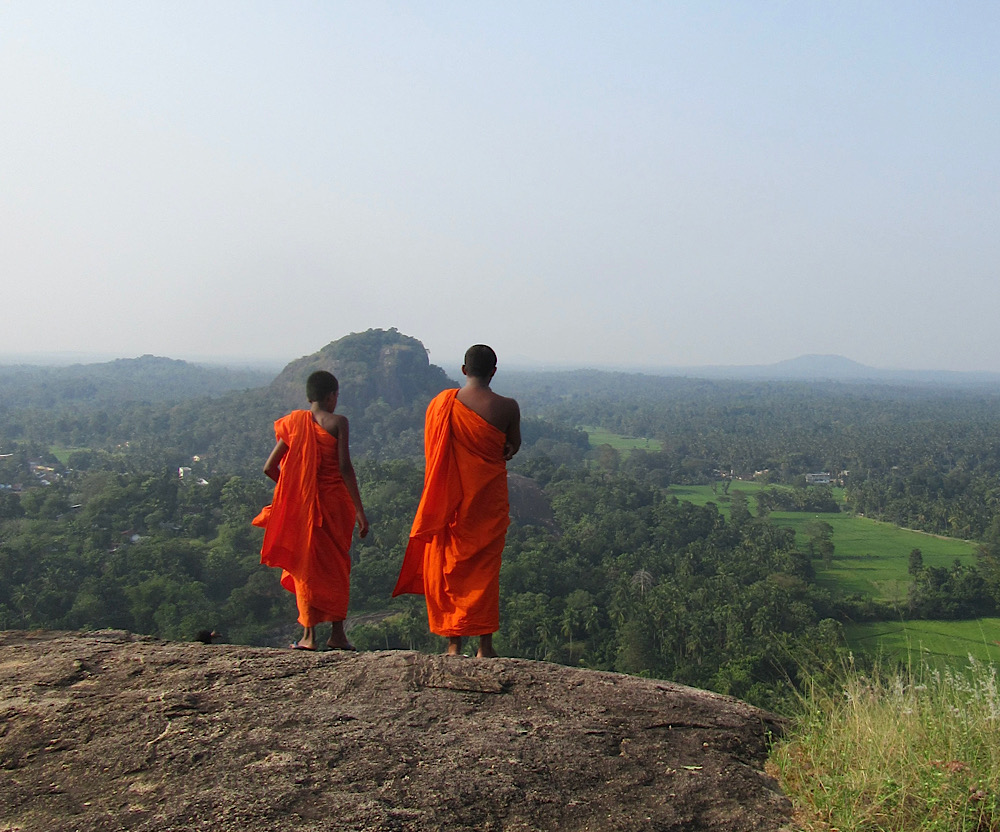Monaragala residents protest coal factory wanted by Colombo and Beijing
For residents and environmental groups, it is illegal and threatens to devastate the area's ecosystem. The facility stands near a protected reserve. Top management claims to have all the necessary permits. The company's goal at first is to export coal to Japan, South Korea and China, and then expand the market to other countries.
Colombo (AsiaNews) - Several acres of forest land, located near a buffer zone in the Udawalawe forest reserve, have been cut down to allow the construction - illegal - of a factory for the production of coal.
At the moment about twenty kilns are operational, with another 19 units that should be built in the short term to increase capacity, against an enormous environmental expenditure: in fact, a single kiln requires four and a half tons of wood to produce "only ” a ton of coal.
The factory, built without any authorization, is located in the village of Arambekema in Thanamalwila, in the Monaragala district, where the inhabitants fear a rapid "desertification" when the structure is fully operational.
Only in recent days, with the emergence of the news of the factory and the first discontent about the environmental risks, has Reitech Trading turned to the Department for Wildlife Conservation (Dwc) for building permits. In reality, the structure was erected in January of this year and remained idle for two and a half months due to a legal dispute promoted by environmental movements and demonstrations by the inhabitants of the area.
Environmentalist Mahesh Gunawaradana tells AsiaNews that "it is a Chinese project to produce charcoal from forest timber" carried out with a Colombo-Beijing partnership of 60 and 40 percent respectively.
“The goal - he continues - is to initially export coal to third countries such as Japan and South Korea, as well as China itself. At a later stage, the products can also be sold to other countries" also because "the export of coal is a good solution to increase foreign exchange reserves" in Sri Lanka. "The wood used to be burned - he concludes - comes from the nearby forest areas".
Sajith, manager of the plant, says it has obtained all the "necessary permits" from the DWC and the company is also authorized to use waste timber from the national park located next to the plant, including Udawalawe National Park.
The position of environmentalists is different, according to whom "it is a problem if the factory was born in a buffer zone of the national park" and the affirmation of the top management according to which it is a project authorized by the Board of Investments (Boi) and has all the documentation.
In fact, the Boi himself, the State Timber Corporation (Stc), the Dwc and the Forest Department responded by clarifying that they "have not granted any permits and have not reached any agreement" for the construction of a factory intended "for the production of coal". .
According to Manjula Amararathna, director of the body that manages protected areas, a request was made "to the deputy director of the southern area to send a report on the project itself" and assess whether "their activities violate our laws".
Similar information was also sent to the Central Authority for the environment and to the Forestry Department. "If the factory - says the manager - is located within the buffer zone, all the relevant government departments will have to evaluate the project and make a decision".
The residents of Arambekema Wijepala Mudiyanse (65 years old) and Menike Dissanayaka (68 years old) report that "the production of charcoal" is an "alarm" element because "it involves the transmission to the ground of the heat generated by the combustion of the woods".
The production also poses a "threat to surrounding trees, plants and crops". Rare and precious trees such as teak, satinwood and neem, they conclude, "have been removed from the woods for the production of charcoal" which, launched at full capacity, risks "losing all the trees in the area".
25/09/2019 14:11
23/09/2019 18:17







.png)










